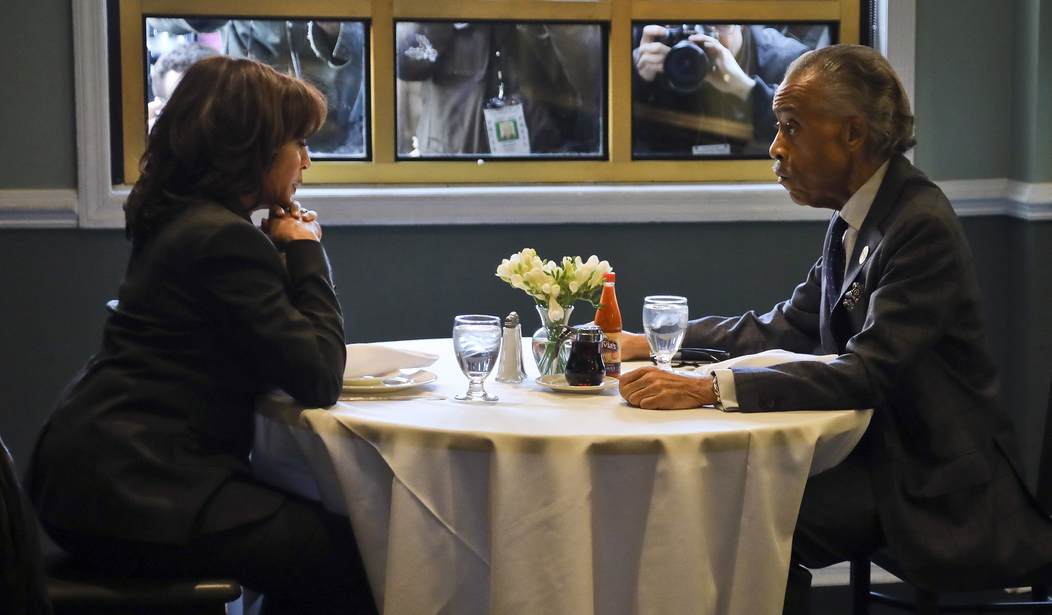Closing the tabs for the first time in a while ...
Her cash-rich campaign spared no expense as it hunted for voters — paying for an avalanche of advertising, social-media influencers, a for-hire door-knocking operation, thousands of staff, pricey rallies, a splashy Oprah town hall, celebrity concerts and even drone shows.
It was a spree that averaged roughly $100 million per week.
The frenzied spending has led to second-guessing among some Democrats, including whether investing in celebrity-fueled events with stars such as Lady Gaga and Beyoncé was more ostentatious than effective.
Ed: Is this second-guessing, or just a recognition of reality?
===
REPORT: The full price tag of Kamala Harris’ town hall event with Oprah was $2.5M, not $1M like initially reported, according to the Daily Beast.
— Collin Rugg (@CollinRugg) November 17, 2024
A bombshell new report reveals how Harris burned through $1.5B in just 15 weeks.
Here is where some of the money went:
- $900,000… pic.twitter.com/6LlGcnt9lH
- $900,000 spent for ad space on Las Vegas' Sphere (she lost by 3 points in Nevada)
- $2.6 million in private jet travel during a two-week period in October.
- $2.5 million towards Oprah’s town hall event.
- $9,000 on ice cream.
- $15,000 on Uber Eats and DoorDash.
Oprah says she was “not paid a dime” but admits her production company was paid.
===
Vice President Kamala Harris' campaign reportedly gave large amounts of money to organizations run by media figures in the weeks before sitting down for interviews with them.
FEC filings, first reported by the Washington Free Beacon, show the Harris campaign gave two $250,000 donations to Rev. Al Sharpton’s nonprofit organization in September and October.
Harris sat down for a friendly interview with the MSNBC host on October 20, in which he asked her what she wanted her legacy to be, 50 years from now.
Ed: If she answered anything other than "cautionary tale," man, won't she be disappointed! The FCC technically doesn't regulate cable broadcasts, but one has to wonder whether the Sharpton arrangement violated payola rules. That's what it smells like -- having a host gain an undisclosed personal benefit from payment from an interview subject -- but I don't believe that law technically applies to non-broadcast entities. It certainly still raises ethical questions.
===
‼️Chrissy Clark.‼️ has receipts on where Kamala Harris spent that 1 billion dollars she raised that put her campaign 20 million dollars in debt.
— (Jason) Stands For Truth (@TrueJMitchell) November 17, 2024
This is crazy and I am so glad she won't be doing any more damage to the United States. pic.twitter.com/vGsiBEiwBx
===
At its core, politics is about governance and resource allocation; everything else is noise. Harris’ campaign sought to replace policy with good vibes. When that failed, only anger remained. Disillusioned with the results, the Harris camp is now guilting everyone – including a baby hippo overseas – for their mistakes.
The Harris campaign’s joy, rage, and detachment from voters is no mystery and is why she couldn’t master the art of the deal.
Ed: The title of this is "The Artifice of the Deal," a very nice turn of phrase I wish I'd conceived myself.
===
===
As I noted two days after the election, the grifter problem that has bedeviled the modern right for years now has an equally powerful counterpart on the left. A whole lot of people on the left saw the Harris campaign as a giant pile of unguarded money, just waiting to be taken.
The Harris campaign spent an estimated $600 million on ads, both digital and television. Top campaign strategists usually use their own media firms to create and air the ads, and get a commission on every ad that airs. So someone, and probably multiple top staffers on the Harris campaign made an absolute fortune.
Ed: Republicans went through some of those same issues after the 2012 election. That didn't eliminate the consultant class, but it certainly made them a lot less influential as the party and the country turned more populist. The fact that Democrats embraced the consultant class as tightly as they did may be the real problem -- they're in the grips of the grift.
===
TOTAL. MAGA. TAKEOVER. #TRUMPDANCE pic.twitter.com/TX3L9ZKoLS
— Trump War Room (@TrumpWarRoom) November 17, 2024
===
Ed: On a side note, has anyone noticed how little we're seeing of Kamala Harris? She's still the sitting VP, but it seems like she's been exiled to an island somewhere. Joe Biden's all over the place, on the other hand.









Join the conversation as a VIP Member